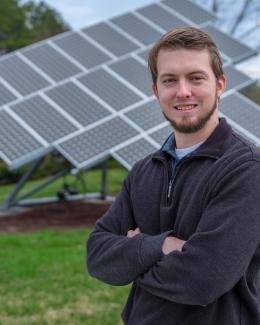Abstract
This paper leverages ongoing work in a community microgrid in Adjuntas, Puerto Rico to forecast global horizontal irradiance (GHI) and compare performance in normal and extreme weather. Given a positive correlation of 0.98 between GHI and PV power, forecasting GHI can be an effective, indirect forecast of photovoltaic (PV) power, especially in microgrids where the end-users, owners, operators, or other stakeholders are reluctant to share data for training or validation due to privacy and security concerns. A recursive one-shot (termed as "blind") forecast is, hence, formulated, wherein a gradient-boosted regression tree (GBR) is built to forecast GHI for a 7-day horizon in normal weather, and a 2-day horizon in extreme weather. To demonstrate its resilience, the architecture is trained on normal and hurricane weather GHI from 2002-2022. It is generalized on February 9-16, 2023, and on the landfall of Hurricane Nicole (Nov 4-5, 2022), respectively. Forecasts from GBR are compared against that from a satellite-based API resource and three baselines: persistence, averaging, and exponential smoothing. Results show GBR and persistence outperform sophisticated API in both types of weather for this case study.






